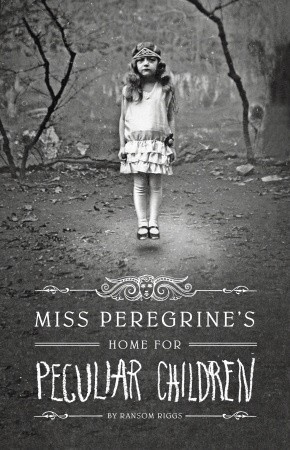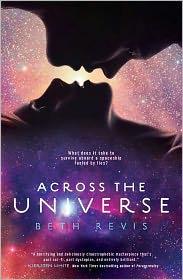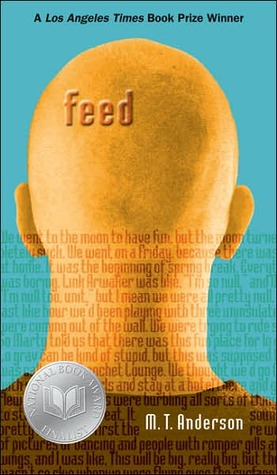It’s time for the Teens Can Write Too blog chain! This month, we were asked to write a retelling of a fairy tale, myth, or legend. I chose the story of the fatal flight of Icarus. I wanted to explore the idea of the gods being much more selfish and manipulative of mortals than usually portrayed–I also questioned the true motives of Icarus and his father, Daedalus, throughout the story. I had planned to extend this retelling to include the death of Perdix as well, but I quickly went over the word count limit.

“You are a despicable creature.”
That was the last thing Minos said to me before my son and I were dragged away. Minos had informed his advisors and the public that he was having me, the great Daedalus, locked away to prevent information of my labyrinth from spreading. The truth was that nary a thought of secrecy had crossed the king’s mind before he figured for himself that I’d been the one who had created the Minotaur. The only rightful person to blame for it all was Minos himself. But of course the oh-so-just-and-mighty king would be looking for a scapegoat, so it all fell on me. Poor old Daedalus—I’m an inventor. I should never have to deal with the business of gods and kings. It’s funny how they never seem to be able to figure things out for themselves.
As punishment for my perceived crime, Minos ordered my son Icarus and I locked away in a tower for the rest of our days. Icarus was angry at me—he believed the word of Minos. When the tower doors slammed with the finality of the Underworld, he turned on me.
“You stupid old meddler!” he shouted. “What did you think you were doing? What do you ever think you’re doing? You aren’t a god. You’re a man.”
I slapped the boy for his insolence. “Shut your mouth,” I ordered. “You know nothing.”
“You just took away my life!” Icarus howled. “I could have gotten myself out of your shadow! I could have gotten a girl! Now I’m going to rot in this blasted tower with you.”
“No, you’re not,” I said. “Be quiet. You were correct in one thing—I’m not a god. But I’m not a man either. You know I’m the son of Athena.”
Icarus glared.
For days we didn’t speak.
My mother spoke to me in the night, appearing in my dreams in the form of an owl. She told me that I must escape.
“Daedalus,” she said, in that voice so distant and divine, “save yourself and your son. Such ingenuity is wasted locked away, and I cannot abide by it.”
I tried to reply, but as always, I found myself paralyzed and mute. The vision ended and faded into normal, jumbled dreams.
The next day, upon awakening, I returned to the type of inventive thought that I had abandoned. Athena wished us to be free, and I could not defy her. I sat down and stared at the sea for hours while Icarus looked on curiously. I was observing the flight patterns of some seagoing birds when inspiration took hold of me: wings. I could construct wings, and my son and I could fly across the sea away from this wretched place.
Icarus told me I was mad when I explained my plans to him. “It’s impossible,” he scoffed. “Men stay out of the sky for a reason. It shouldn’t be done.”
“Hush, boy,” I said. “Do you want to escape or not?”
Icarus pouted. “I want to get out of here.”
“Then do as I say. We need to gather hundreds of feathers—we’d best start immediately.”
One balmy evening, I began threading feathers together for a pair of wings. Suddenly, I was overcome with drowsiness and fell fast asleep at my work. I immediately began dreaming. I was confronted by a powerful figure—a god whom I immediately recognized as Poseidon. This was not the first time I had encountered him in my visions.
“What you have done warrants me to kill you where you lie,” the god rumbled. His eyes flashed from beneath his wild, seaweed-laden hair.
I tried to speak, but, as always, found myself paralyzed. My spirit quaked. I had always feared Poseidon, an enemy of my mother, above all other deities.
“Need I remind you of how I have spared you so far?” Poseidon said. “You have defied me repeatedly in these past months—supporting Minos and Pasiphae, and now imprisoning my Minotaur. I demand repayment.”
“Now you seek to travel across my sea,” he continued. “You presume to venture into my realm. I will not let you pass without a sacrifice. Give me one of your lives—you or your son—and the other shall fly safely. Do this or your tower will crumble into the sea and you will both die, child of Athena.”
I woke, still trembling. Of course I took the threat seriously—what else could I do? I had no choice but to obey the orders of my mother and fly into the clutches of the god who hated me, who would see me and my son both dead.
Icarus was standing at the window, gazing out at the sea. He was a lanky youth, really only a boy, and he was my son. How could I let him fall into Poseidon’s hands? It had to be me. I had to be the one to die. I would set Icarus off flying, and then jump into the sea. I nodded to myself. It would be done. Hands shaking slightly, I returned to my work.
“Icarus,” I called, “come help me. I need you to hand me feathers as I string them together. And get the wax, will you? I’ll need it later on.”
The boy sighed and sat next to me. He wasn’t foolish—he understood what I was doing, and gathered the largest feathers from the pile, handing them to me without my prompting. He was easily distracted, and fiddled with the feathers and wax.
That night, Athena spoke to me again. “I have been informed of Poseidon’s bargain with you, and I have no way of stopping it, but I cannot let your genius die. Give him your son.”
Now the gods had told me exactly what I had to do. Icarus and I had to try and escape, and I had to let him die. I woke at dawn the next morning and saw my son sleeping on his pallet. His mouth was slightly agape, and his eyelids flickered. A lump grew in my throat at the thought of sending him to his death. But I had no choice—I was completely and irrevocably trapped. I just had one last, desperate attempt to make: beg.
I got out of bed and shuffled carefully past Icarus, then ascended the ladder to the open top of our tower. The sun was just peeking over the horizon, painting the sky red. I could hear the crash of waves against the rocky cliff face, and the cool, salty air stung my eyes. “Poseidon!” I called boldly, although my hands were shaking. “I would have a word.”
“I do not mean to disrespect you,” I continued, “but I wish to strike a bargain.”
“You don’t bargain with gods, Daedalus.”
I whirled to see Athena, not Poseidon, standing behind me. “Mother,” I said, and quickly knelt.
“I am sorry that Poseidon is forcing you to compensate him for the imprisonment of the Minotaur, but there is nothing either of us can do,” Athena said. “I simply will not allow you to kill yourself. Your son must die.”
My eyes filled with tears. I was temporarily blinded, and by the time I managed to blink away my tears, Athena had disappeared. When I moved to go back down the ladder, I saw Icarus dart away. I froze. He must have heard it all.
When the wings were ready, I said nothing regarding the sacrifice we had to make. I knew that Icarus was aware of it, but I had settled that I would not kill him with my own hands under any circumstances. If Poseidon wanted my son, he’d have to take him.
The wings worked perfectly, as I knew they would. None of my inventions have ever failed. We did not rejoice in our freedom, for we knew that only one of us would make it to our destination. We flew for hours, and nothing came to knock Icarus out of the sky. My son pulled back to fly beside me.
“He must be waiting for us to do it of our own accord!” Icarus shouted over the wind, the first time he had spoken of the sacrifice we had to make.
“No!” I said. “I will not have it.”
“Father, I’m sorry!” Icarus cried, his face full of anguish. “But I cannot let us fall even farther out of favor with the gods.”
With that, he shot up into the sky. I moved to pursue him, but couldn’t fly fast or hard enough. I watched in horror as my son ripped off his own wings. He seemed suspended for a moment, then, screaming, he plunged towards the waves below.
“Icarus!” I shouted.
There were two splashes in quick succession below as my son and his wings were swallowed by the ocean.
I kept flying.
August 4 – http://musingsfromnevillesnavel.wordpress.com – Musings From Neville’s Navel
August 5 – http://crazyredpen.blogspot.com/ – Crazy Red Pen
August 6 – http://lilyjenness.blogspot.com – Lily’s Notes in the Margins
August 7 –http://oliviasopinions.wordpress.com/– Olivia’s Opinions
August 8 – http://snippetsandslicesandscenes.blogspot.ca/ –Snippets, Slices, and Scenes
August 9 – http://markobrienwrites.blogspot.com – Mark O’Brien Writes
August 10 – http://onelifeglory.blogspot.ca/ – One Life Glory
August 11 – http://www.astoryofadreamer.blogspot.com/ – A Story of a Dreamer
August 12 – http://weirdalocity.wordpress.com/ – Life, Among Other Things
August 13 – http://maybeteenauthor.blogspot.com – Blog of a (Maybe) Teen Author
August 14 – http://theteenagewriter.wordpress.com/ – The Teenage Writer
August 15 –http://scribblingbeyondthemargins.wordpress.com – Scribbling Beyond the Margins
August 16 – http://otherrandomthings.wordpress.com – Dragons, Unicorns, and Other Random Things
August 17 – http://kirstenwrites.wordpress.com/ – Kirsten Writes!
August 18 – http://laughablog.wordpress.com –The Zebra Clan
August 19 – http://miriamjoywrites.wordpress.com – Miriam Joy Writes
August 20– https://allegradavis.wordpress.com – All I Need Is A Keyboard
August 21 –http://incessantdroningofaboredwriter.wordpress.com–The Incessant Droning of a Bored Writer
August 22 – http://teenscanwritetoo.wordpress.com– Teens Can Write Too! (We will be announcing the topic for next month’s chain)


















